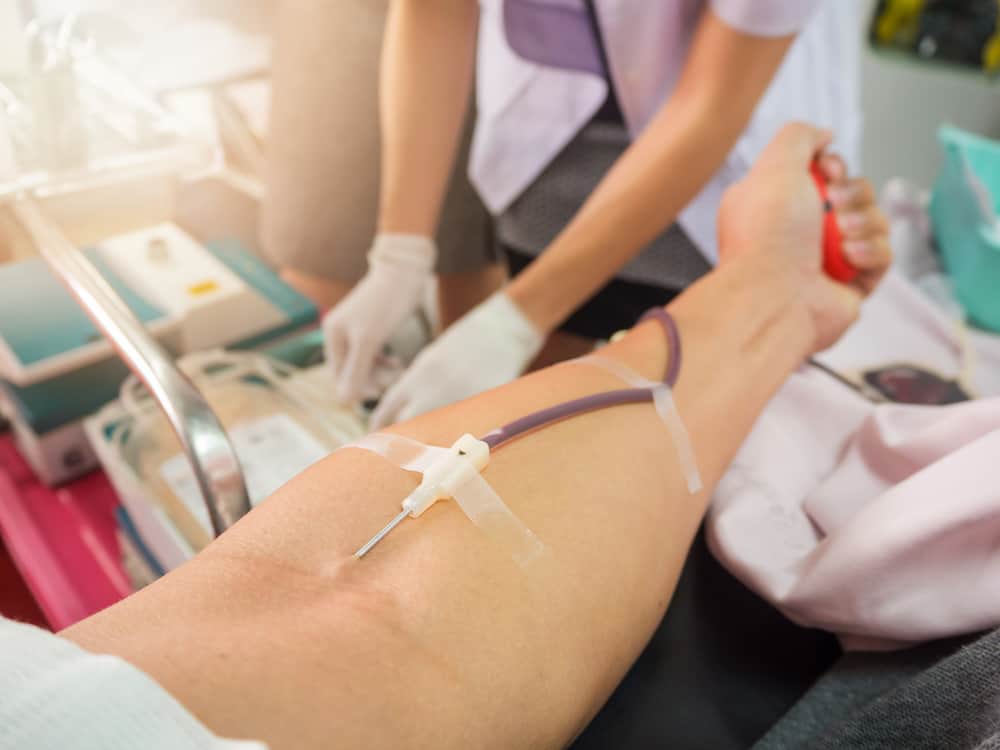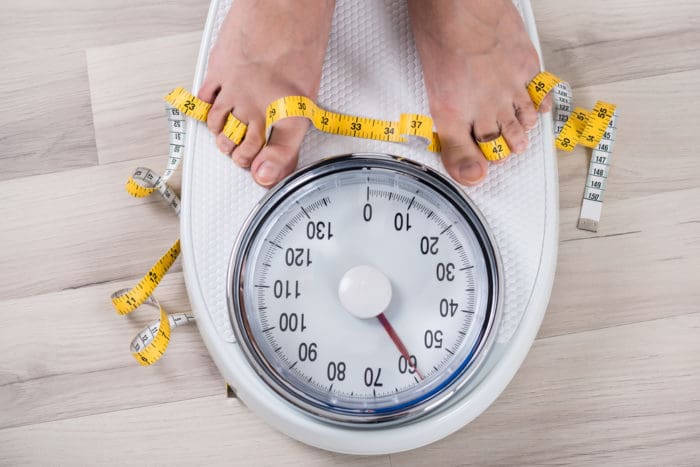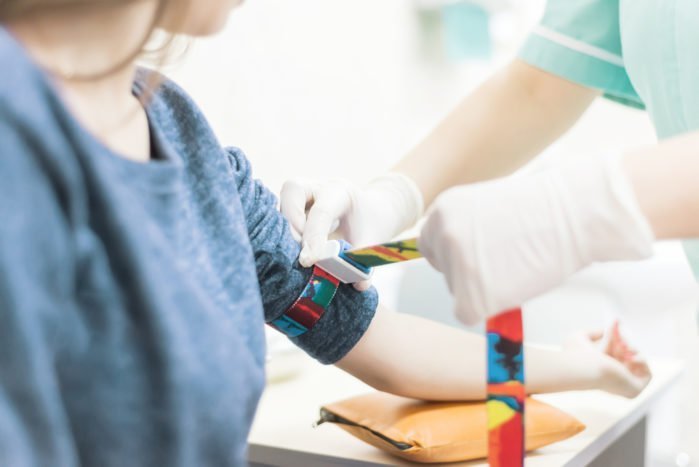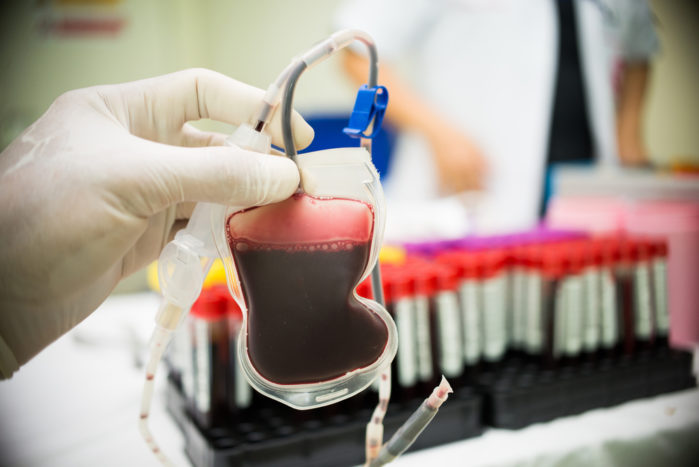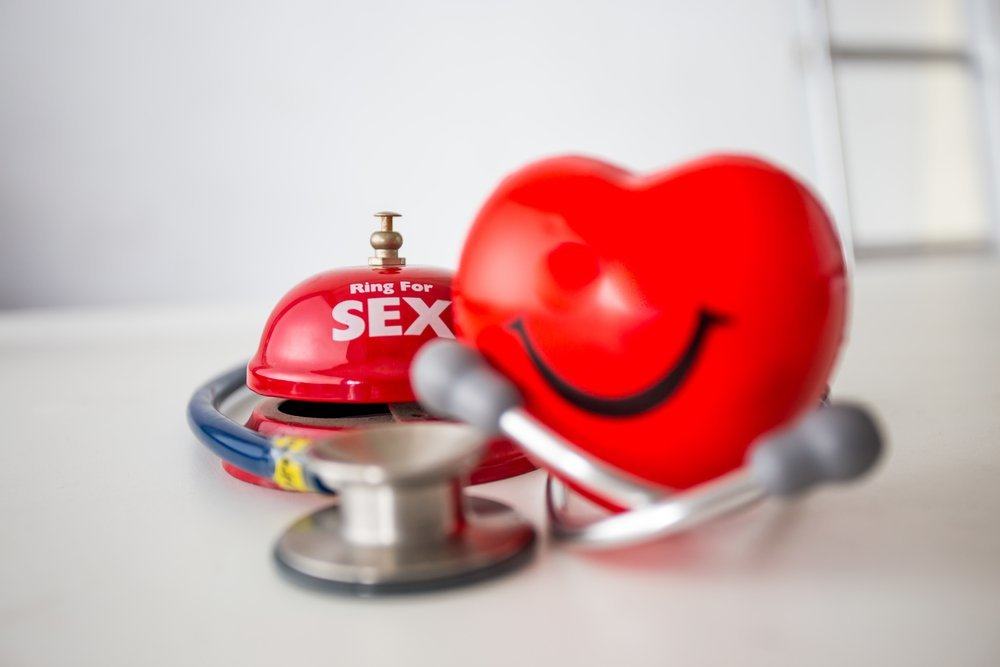Contents:
- Medical Video: What Happens to the Blood You Donate? | Cedars-Sinai
- Various benefits of blood donation
- 1. Reducing the risk of heart and blood vessel disease
- 2. Reducing the risk of cancer
- 3. Helps to lose weight
- 4. Detect serious diseases
- 5. Make it healthier psychologically and prolong life
- Not everyone can be a blood donor
- What to do before blood donation
- All you have to prepare when donating blood
- What you should pay attention to after donating blood
- How many times is the ideal blood donor done to get the benefits?
Medical Video: What Happens to the Blood You Donate? | Cedars-Sinai
Blood is one of the most important components in the human body. Your decision to donate blood through a blood donor can save one life, or even several lives at once. However, it is not only beneficial for the recipient of blood, blood donors also benefit the donor. Check out the benefits of blood donors below.
Various benefits of blood donation
Quoted from the Tempo page, WHO data shows that blood needs in Indonesia per year reach around 5.1 million blood bags, while those that are fulfilled are only around 4.2 million bags of blood.
Figures that are less than this target result in many hospitals still often having difficulties in meeting the needs of blood transfusions. The lack of blood availability is thought to be a result of the low awareness of the community to donate blood. In fact, the benefits of blood donation are not only felt by recipients of donors, but also donors.
Here are some of the benefits of blood donation that you should know:
1. Reducing the risk of heart and blood vessel disease
Regular blood donors are known to reduce blood viscosity. Blood viscosity is one of the factors that play a role in increasing the risk of heart disease.
The thicker the blood that flows in the body, the higher the possibility of friction between blood and blood vessels. Friction that occurs in these blood vessels can damage the cells of the blood vessel walls which in turn can increase the risk of blood vessel blockage.
A study shows the benefits of blood donors for heart disease. From the study, it was found that people who routinely make blood donations were 88 percent less likely to develop heart disease than those who did not do blood donation
In addition, the benefits of blood donation can also help remove excess iron found in the body. Excess iron in the blood can cause cholesterol oxidation. The results of the oxidation process can accumulate on the arterial wall and increase the risk of a heart attack and stroke.
Through blood donation, iron levels in the body can become more stable and reduce the risk of heart and blood vessel disease.
2. Reducing the risk of cancer
Reducing excessive iron in your body while making blood donations can also reduce the risk of getting cancer. Conversely, excessive levels of iron in the blood are considered as one of the causes of increasing free radicals in the body which can be a risk factor for cancer and aging.
A study involving 2 groups with a total of 1200 people showed the benefits of blood donors to the risk of cancer. In the group that did blood donation twice a year it was known to have more stable iron levels in the blood and lower cancer risk compared to groups that did not do blood donation.
3. Helps to lose weight
Another benefit of blood donation is helping to lose weight. This is because rthe average adult can burn 650 calories when giving 450 ml of his blood.
Donors who routinely donate blood can experience significant weight loss. However, it should also be remembered that blood donors cannot be chosen as a weight loss program.
You still have to apply a healthy lifestyle by paying attention to your food and exercise intake regularly so you can achieve your ideal body weight.
4. Detect serious diseases
Each time you donate blood, you will undergo a routine baseline examination such as weight checks, temperature, pulse, blood pressure, and hemoglobin levels.
In addition, you will also be asked to undergo a blood test to detect the presence or absence of diseases such as HIV, hepatitis B, hepatitis C, syphilis, and malaria. This aims to prevent transmission of disease through transfusion.
The benefits of blood donation are not just that. For donors, this examination is of course useful for detecting certain diseases early. So besides helping other people who need blood, you can also get a free health check.
5. Make it healthier psychologically and prolong life
A study in the field of psychology shows that people who donate blood with the aim of helping others have a lower risk of death compared to people who make blood donations for their own benefit or not even donate blood at all.
In addition, contributing things that are priceless to those in need will make us feel psychological satisfaction.
So, when do you want to start a blood transfusion so you can feel the benefits of blood donation as mentioned above?
Not everyone can be a blood donor
After reading the blood donor, are you interested in trying it? Eits, wait a minute. Apparently not everyone can donate blood, you know. In addition to being required to be physically fit, you must also be between 17-66 years old.
Not only that, medical history and a number of other habits are also conditions for becoming a donor. Here are conditions where you are not recommended to donate blood:
1. Having a fever or flu
Although not a severe illness, fever and flu can make your body become fit and fresh. So before blood donation, make sure your body is in a fit condition. If you feel unwell, you should recover your condition first.
2. Weight less than 50 kg
The amount of a person's blood in accordance with the proportion of body weight and height. People who are underweight are considered to have a small amount of blood.
If forced, it is feared that it cannot tolerate the taking of blood as needed in the transfusion process. Therefore, usually before blood donation, the officer will weigh your weight first.
3. Havinghigh blood pressure
If your blood pressure is more than 180/100 mmHg, then you should not make a blood donor. If you keep doing it, it will only endanger your condition.
4. High blood sugar levels
If you have a history of diabetes and blood sugar levels are in a high state, then you are not recommended to donate blood.
5. Take antibiotics
If you are required to routinely take antbiotic drugs in a certain period of time, you should not do blood donation first. Because, the antibiotics you drink can be transmitted through the blood you donate.
6. Having heart failure
If you experience heart disease such as a heart attack in the past 6 months, then you should delay donating blood.
7. Just been pierced in the body
You may not donate blood if there are piercings on the tongue, nose, navel, and other body parts that have just been paired within the previous 12 months. Meanwhile, piercing in the ear is still allowed to donate.
8. Affected by a sexually transmitted infection
If you have been infected with a sexually transmitted disease such as syphilis or gonorrhea in the last 12 months. You have to wait 12 months after your treatment is completely finished to be able to donate blood.
9. Is pregnant
Pregnant women are not allowed to donate blood. If you want blood donation, you have to wait up to 6 months after birth.
10. Has a certain history
In addition, you may never donate blood if you have a history of diseases such as HIV / AIDS, Hepatitis B and Hepatitis C, and have used drugs and illegal drugs.
To find out if you have this condition, it is better to check with your doctor before donating blood.
What to do before blood donation
Just like other medical procedures, donors also need various preparations so that the process runs smoothly. Here are some things you should prepare before blood donation:
- Drink plenty of fluids a day before blood donation, especially if the weather is hot. Because, when donating blood, your blood volume will decrease.
- You can eat salty food about 12 hours before donating blood because after your blood is taken, you lose about 3 grams of salt from the body.
- Sufficient for your daily iron requirements so that you don't experience iron deficiency. You can find sources of iron from beef, fish, broccoli, asparagus, spinach and other green vegetables.
- Make sure you get enough sleep before blood.
- Tell all types of medicines that you are taking (either prescription drugs, no prescription, vitamins or herbs) before donating blood.
- Eat enough 3-4 hours before the donor to prevent you from feeling weak, dizzy, or tired after blood donation.
- 3 hours before donating blood, you are also advised to drink plenty of water or fruit juice.
All you have to prepare when donating blood
Here are some things you should prepare when donating blood:
- Use clothes that are loose or not too tight, making it easier for the blood to take.
- If this is your first time making a blood donor, don't be too tense. Relax your mind and body by listening to music, reading, or chatting with fellow donors so that the blood collection process runs smoothly.
- If you are accustomed to donating blood, you may have an arm that is easier to find blood vessels, you can inform the donor officer about this.
What you should pay attention to after donating blood
After blood donation, you are advised to sit for a while while drinking water or eating small meals. Then you can wake up slowly to make sure you don't feel dizzy.
In addition, you must also:
- Limit physical activity for at least 5 hours after the donor. It's a good idea to avoid doing strenuous activities and standing for a long time. For example, long lines or stand on crowded public transportation.
- Do not immediately release the tape that attaches to the injection area. This is done to avoid exposure to germs and bacteria in the area. You can remove the tape at least 4-5 hours after you have finished blood donation.
- To avoid a rash on the skin, you should clean the area around the tape with soap and water.
- If you experience bruises in the area of the injection site, you can put a cold compress to ease the pain.
- If the needle puncture marks bleed, you should press the area and lift your arms straight up for about 5-10 minutes or until the bleeding stops.
- You should not stand long in direct sunlight and not drink hot drinks. Use a hat or umbrella to protect yourself from direct sun exposure.
- If you smoke, you should not smoke for two hours after blood donation. Smoking after a blood donor can make you feel dizzy and want to faint. Also, you should stay away from places where there is a lot of cigarette smoke.
- If you drink alcohol, you should not drink alcohol until 24 hours after the donor.
- Drink plenty of fluids to replace your lost body fluids, at least youadd 4 glasses of water on your day of blood donation. Your body will be able to replace lost fluids within 24 hours after blood donation.
- The body takes several weeks to replace red blood cells that are lost after blood donation. At this time, you should keep your food intake so that new, healthier red blood cells are quickly formed. Expand foods that contain iron, vitamin C, folic acid, riboflavin (B2), and vitamin B6.
Inform the donor officer if you experience health problems after donating blood, for example feeling nauseous, dizzy, experiencing bleeding, or there are lumps in the area of the injection site.
How many times is the ideal blood donor done to get the benefits?
A large amount of iron in your body will be lost after blood donation. To compensate for this, the remaining iron will be rotated evenly throughout the body, and the body can also increase the amount of iron from healthy foods and drinks.
Men usually have more iron than women. Iron deficiency can cause hemoglobin levels to decrease, and if left untreated, it can lead to iron deficiency anemia. That's why you have to wait at least eight weeks (56 days) from the last blood donor, if you want to donate again.
Then, how often do you have to donate blood? According to the pageGive Blood, men may donate blood every 12 weeks (three months) and women can give their blood every 16 weeks (four months) -a maximum of 5 times in 2 years - because men usually have more iron supply than women.
However, always consult a doctor or health care provider before you make a blood donor. This is done so that you can feel the benefits of blood donation more optimally.

